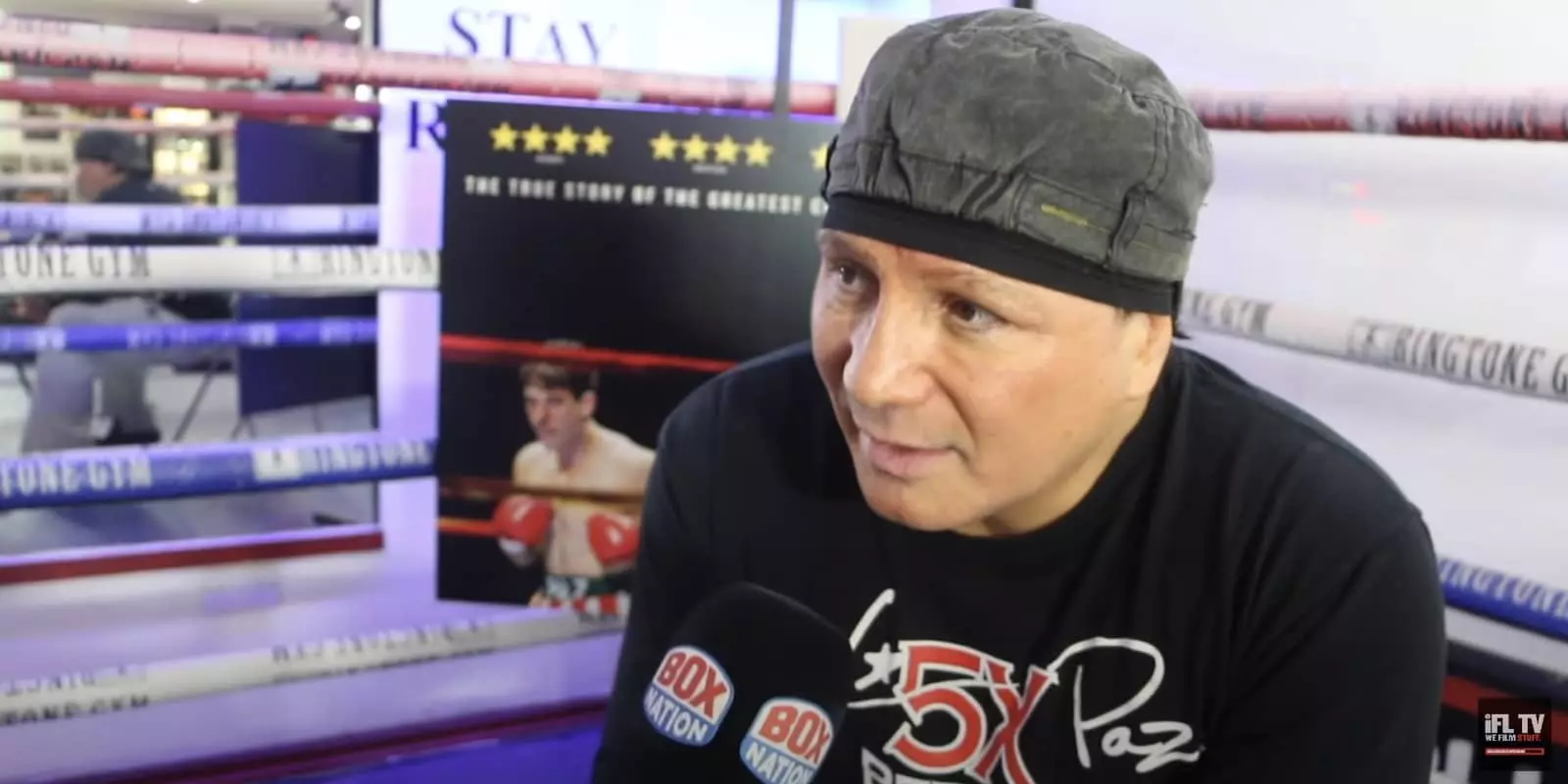This past weekend, the boxing world witnessed an emotional and memorable moment as Vinny Pazotto, popularly known as Vinny Paz, was inducted into the Hall of Fame alongside other boxing legends like Manny Pacquiao and Michael Nunn. The event was a celebration of accomplishments and legacies in the sport, a night where respect and admiration flowed freely. Yet, amidst the ceremony’s cheers and applause, one man’s name seemed to overshadow the occasion for Paz: Greg Haugen. The shared history between these two fighters, marked by intense rivalry and personal animosity, still elicits strong feelings in Paz, even after Haugen’s passing from cancer earlier this year.
Rivalry Revisited
Paz’s revival of their storied rivalry just goes to show that lingering grudges can inhabit the hearts of even the most accomplished athletes. Paz and Haugen fought three grueling bouts in their careers—two of which Paz won, and one that went to Haugen. Each match tested the limits of their endurance at both 130 and 140 pounds, with every fight going the full distance. Typically, retired professional boxers look back on their careers with a sense of closure. Yet Paz’s reaction reveals that some wounds remain open, festering long after the bell has rung.
In an interview with The Ring, Paz did not mince his words when expressing his feelings towards his former opponent, stating unequivocally, “I hate him.” It’s a stark sentiment that underscores not just a fierce competition but also an emotional intensity rarely seen in the sport. This declaration is a testament to the psychological battles that often accompany physical ones in the boxing ring.
Grudges That Transcend Time
Paz’s vehement feelings also open up discussions about the nature of rivalry in sports. What drives an individual to harbor such strong animosity toward a rival, particularly when that rival is no longer around to counter? For Paz, it appears that the undying flame of competition has a dual function: it serves as a motivator and a bitter reminder of past encounters. With commentaries riddled with harsh words, it’s evident that their tumultuous exchanges extended far beyond the ring. Lines were drawn, and the animosity baked into the fabric of their careers—Paz saw Haugen as a significant threat, while Haugen, in turn, viewed Paz as an arrogant competitor.
The Echoes of Competition
While some might find it strange that Paz continues to harbor resentment towards a man who no longer walks the earth, it reflects a deeper truth about human emotions. Sometimes, the rivalries created in youth and the ferocity of competition can become a part of one’s identity. Perhaps even Paz himself questions the nature of this unyielding dislike, but the emotional turmoil can drive a fighter to embrace their history rather than vilify it.
Notably, Haugen’s fierce words about Paz during an interview just before his death showcase the dynamic between the two. Haugen had dismissed Paz as “a pretty white boy” who overestimated his proficiency. This angry banter solidified their rivalry, demonstrating that animosity is often mirrored in the attitudes and opinions of both fighters. The narratives they have shaped continue to resonate long after the fights came to a conclusion.
A Legacy of Conflict
In the realm of boxing, rivalries can often define the careers and legacies of fighters, and the saga of Paz and Haugen has certainly cemented itself into the larger narrative of the sport. Every clash between these two competitors was as much a battle of egos as it was of physical prowess. For Paz, the remembrance of battling “Mutt” is bittersweet, filled with respect but also unresolved feelings of hatred.
An important observation to make here is the psychological weight that such rivalries can carry throughout life. For Paz, it seems his animosity may serve as a driving force to this day, shaping his perception of himself as a fighter. We often talk about sportsmanship and respect—a concept familiar to all athletes—but it’s evident that the emotional scars from competition can sometimes overshadow these ideals. Thus, that fierce, unyielding rivalry may be considered not just a part of boxing but a complex web of human connection marked by conflict and resolution.
In their graves, both fighters remain formidable, echoing the age-old truth that some battles extend well beyond the ring, manifesting as emotional struggles that no referee can score or mediate.

